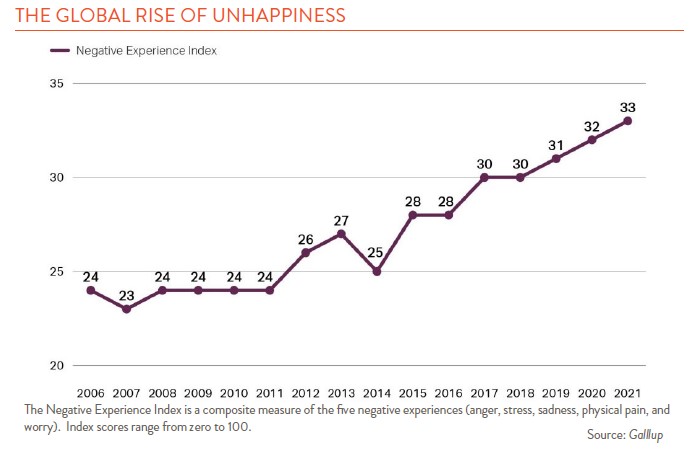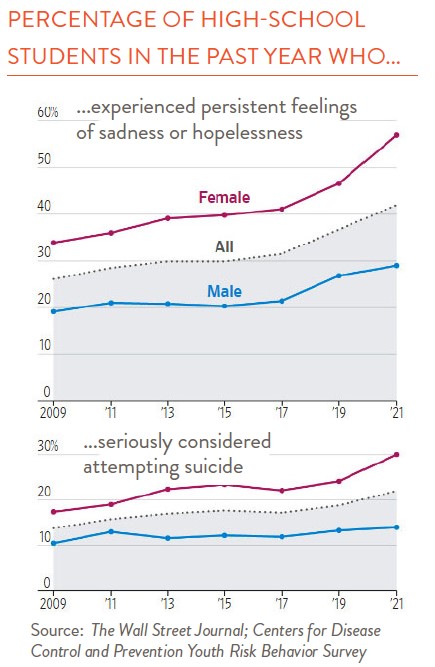As if rising inflation, a falling stock market, and the possibility of a recession were not enough, now we are here to talk to you about unhappiness. (Spoiler alert, there is hope and a positive spin at the end).
But first the unhappy part. The Gallup organization has been asking people in many countries over many years how their lives are going. The chart below is from Gallup CEO Jon Clifton’s new book, Blind Spot. People are getting more unhappy. Some of the most recent increase is due to Covid anxiety, but worldwide unhappiness has been steadily increasing. We don’t know exactly why this is but contributing factors include unfulfilling jobs, insufficient finances, unsafe communities, poor health, and the lack of a strong network of family and friends.

Here in the U.S., one particular group suffering unusual stress is Gen Z, young people born between 1997 and 2012. They are showing an alarming increase in loneliness and sadness. There are many reasons for this but in an interview in The Wall Street Journal, Jonathan Haidt of the Stern School of Business at NYU points to one outsize factor: social media. In 2012 Facebook bought Instagram and the “selfie era” took off. Young people, especially girls, post pictures online of their perfect lives only to find even more perfect lives posted by others. It becomes “compare and despair.”

The average American according to the WSJ spends 11 hours a day on media, from TV to videos to smartphones. And young people probably spend more than 11 hours a day. We are social creatures, and this time alone breeds loneliness, timidity, and in the case of Gen Z, lifelong negative consequences according to Haidt. This generation will be more fragile, less effective, and less impactful than previous ones. This is a pretty extreme indictment, and it may be that the current state of unhappiness among the young is a passing thing. Boomers survived the drugs and politics of the 60s and 70s, and this generation may also survive their current problems.
Now for the good news. The Harvard Adult Development Study has been tracking for over 85 years the physical and mental changes in a group of 724 Harvard undergraduates and their 1300 male and female descendants. They also added a group of 456 young boys from troubled families in Boston to balance what might be perceived as an Ivy League bias.
They found that there is one factor that has contributed the most to a longer, healthier life and reduction in loneliness. According to George Vaillant, the head of the Harvard study from 1972-2004, “When the study began, nobody cared about empathy or attachment. But the key to healthy aging is relationships, relationships, relationships.” Fame and fortune are certainly nice but the secret to life according to Harvard’s nearly century long study is to ditch all the background noise (i.e. your smartphone) and focus on family and friends. It will pay dividends.